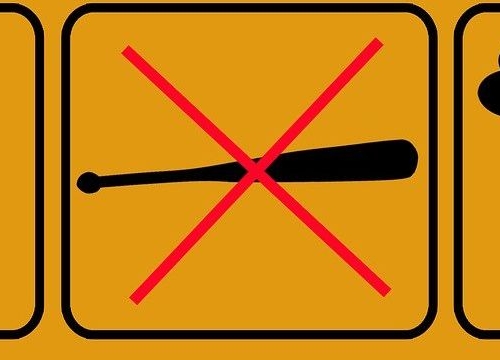Electric Shock Belts, Spiked Batons, and Pepper Spray: Regulating the Trade in Torture Tools
Event


Sumanley xulx /Pixabay
Torture is absolutely prohibited. However, there are currently no global regulations regulating trade in the ‘tools of torture’. ‘Tools of torture’ comprise inherently abusive equipment such as body-worn electric shock devices, weighted leg irons and spiked batons that can only be used for torture or ill-treatment; and equipment such as police batons, rubber bullets and pepper spray — that can be readily misused for such purposes.
To fill this regulatory gap, the EU, Argentina, and Mongolia initiated the Alliance for Torture-Free Trade in 2017. The alliance gathered to create an international instrument that builds upon existing regional measures such as the EU’s Anti-Torture Regulation (Regulation 2019/125), first adopted in 2005 and amended in 2019. The ongoing work of this alliance has led to the adoption of UNGA Resolution (73/304) (2019), which resulted in a report from the UN Secretary-General (74/969) (2020), and a report by the UN Group of Governmental Experts (76/850) (2022). The UN General Assembly reiterated its commitment to addressing this governance gap with Resolution (77/209) (2022).
To showcase these efforts, the Geneva Academy and the Geneva Graduate Institute are co-conveying a high-level public panel with key experts in the field of torture. The roundtable will explain the genesis of the abovementioned regulatory initiatives, what it took to achieve them, and shed light on the road ahead.
Event Rationale
How might an international trade regulation help advance anti-torture initiatives? To address this question, this high-level public roundtable will firstly situate a range of UN initiatives that aim to regulate the trade in ‘tools of torture’. Secondly, it will introduce the main findings and policy recommendations of the UN Group of Governmental Experts, as articulated in their 2022 report. Bringing together the insights of experts from a range of institutions involved or with a stake in this regulatory process, this roundtable will also address next steps. Panelists will notably be asked to reflect on how to generate enough critical will and momentum in order to advance a legally binding global treaty regulating the trade in ‘tools of torture’. Given the recent call for input (28 April 2023) by Alice Edwards, the UN Special Rapporteur on Torture, this event is extremely timely and hopes to provide a fruitful space for multistakeholder dialogue and exchange.
Moderators
- Nico Krisch, Professor of International Law, Geneva Graduate Institute
- Ezgi Yildiz, Assistant Professor of International Relations, California State University Long Beach and Member of the Informal Expert Group for the Implementation of the EU’s Anti-Torture Regulation
Speakers
- Alice Edwards, UN Special Rapporteur on Torture and Other Cruel, Inhuman or Degrading Treatment or Punishment and Visiting Research Fellow, Geneva Academy
- Andrew Clapham, Professor of International Law, Geneva Graduate Institute and Geneva Academy
- Asger Kjaerum, Director of Advocacy, International Rehabilitation Council for Torture Victims and former Chair of the UN Group of Governmental Experts on Torture-Free Trade
- Michael Crowley, Research Associate, Omega Research Foundation and Member of the Informal Expert Group for the Implementation of the EU’s Anti-Torture Regulation
- Thomas Wagner, Deputy Permanent Representative of the EU Delegation in Geneva
- Verity Coyle, Senior Advisor, Amnesty International
Reception
The event will be followed by a reception.









